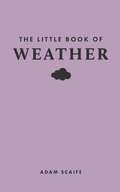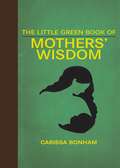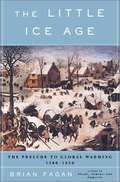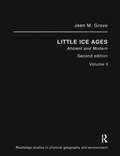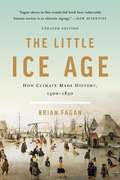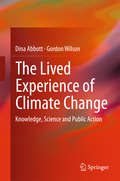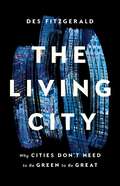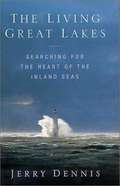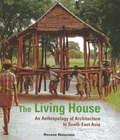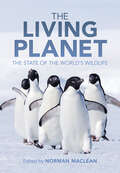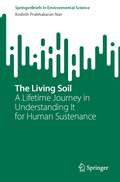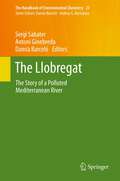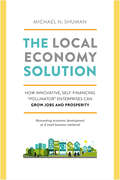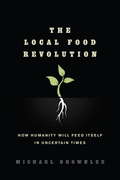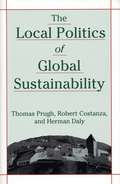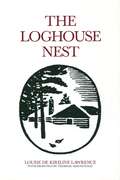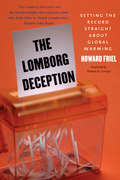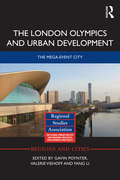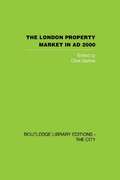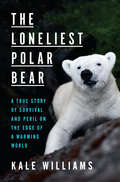- Table View
- List View
The Little Book of Weather (Little Books of Nature)
by Adam ScaifeA charming, richly illustrated, pocket-size exploration of the world&’s weatherPacked with surprising facts, this delightful and gorgeously designed book will beguile anyone who is curious about weather. Expertly written and beautifully illustrated throughout with color photographs and original color artwork, The Little Book of Weather is an accessible and enjoyable mini-reference about the world&’s weather, with examples drawn from across the globe. It fits an astonishing amount of information in a small package, covering a wide range of topics—from weather forecasting and extreme events such as hurricanes and typhoons to the future of weather with climate change. It also includes curious facts, myths, and history—from whether animals can predict the weather to the bad weather that helped doom Napoleon and Hitler&’s invasions of Russia and the Soviet Union. The result is an irresistible guide to the amazing world of weather.A beautifully designed pocket-size book with a foil-stamped cloth coverFeatures some 140 color illustrations and photosMakes a perfect gift
The Little Green Book of Mothers' Wisdom (Little Red Books)
by Carissa Bonham&“My home is green enough to be healthy but chill enough to be happy.&” —Leah Segedie, Green Enough In an era of online mom‑shaming, Carissa Bonham likes to keep things authentic when discussing the struggles of modern motherhood. One popular meme shared on Carissa&’s website, Creative Green Living, says &“Some days I make beautiful dinners from scratch. Today my kids had cereal and ice cream for dinner. At least it was organic.&” This is motherhood today. Carissa&’s charming mix of inspirational and aspirational quotes mixed with real‑life mom moments will make The Little Green Book of Mothers&’ Wisdom both encouraging and inspirational for moms of all ages, including millennial and Gen X mothers. Explore the journey of motherhood, the life-giving power of mothers, mom instincts, and cultural parenting through the quotes on these pages. Receive advice from crunchy moms, mothers of differently wired kids, and mothers of teens and adult children. This charming mix of inspiration and aspirational quotes mixed with a dash of reality about modern motherhood has something for every mom. &“Being a mother is an attitude, not a biological relation.&” ―Robert A. Heinlein, Have Space Suit—Will Travel &“Having a child flips your concept of love upside down into new depths, otherwise unknown to the human heart.&” ―Julieanne O'Connor &“By loving them for more than their abilities we show our children that they are much more than the sum of their accomplishments.&” ― Eileen Kennedy-Moore, Smart Parenting for Smart Kids
The Little Ice Age
by Brian M. FaganThe Little Ice Age, the most significant climate event of the last millennium, was sandwiched between two warm spells-- the Medieval Warm Period, which lasted from about 900 to 1300 AD, and the present global warming, which began in about 1850. Although climatologists long suspected the broad outlines of these periods, only within the past decade have they developed an accurate picture of climate conditions in historical times. They can now determine yearly average temperatures and rainfall, the times and magnitude of volcanic eruptions, and even how brightly the sun shone centuries ago. This book focuses on the weather, farming and the fishing and exploring of the north Atlantic.
The Little Ice Age: Ancient And Modern (Routledge Studies In Physical Geography Ser. #Vol. 5)
by Jean M. GroveThe evidence for the Little Ice Age, the most important fluctuation in global climate in historical times, is most dramatically represented by the advance of mountain glaciers in the sixteenth and seventeenth centuries and their retreat since about 1850. The effects on the landscape and the daily life of people have been particularly apparent in Norway and the Alps. This major book places an extensive body of material relating to Europe, in the form of documentary evidence of the history of the glaciers, their portrayal in paintings and maps, and measurements made by scientists and others, within a global perspective. It shows that the glacial history of mountain regions all over the world displays a similar pattern of climatic events. Furthermore, fluctuations on a comparable scale have occurred at intervals of a millennium or two throughout the last ten thousand years since the ice caps of North America and northwest Europe melted away. This is the first scholarly work devoted to the Little Ice Age, by an author whose research experience of the subject has been extensive. This book includes large numbers of maps, diagrams and photographs, many not published elsewhere, and very full bibliographies. It is a definitive work on the subject, and an excellent focus for the work of economic and social historians as well as glaciologists, climatologists, geographers, and specialists in mountain environment.
The Little Ice Age: How Climate Made History 1300-1850
by Brian FaganOnly in the last decade have climatologists developed an accurate picture of yearly climate conditions in historical times. This development confirmed a long-standing suspicion: that the world endured a 500-year cold snap-The Little Ice Age-that lasted roughly from A.D. 1300 until 1850. The Little Ice Age tells the story of the turbulent, unpredictable and often very cold years of modern European history, how climate altered historical events, and what they mean in the context of today's global warming. With its basis in cutting-edge science, The Little Ice Age offers a new perspective on familiar events. Renowned archaeologist Brian Fagan shows how the increasing cold affected Norse exploration; how changing sea temperatures caused English and Basque fishermen to follow vast shoals of cod all the way to the New World; how a generations-long subsistence crisis in France contributed to social disintegration and ultimately revolution; and how English efforts to improve farm productivity in the face of a deteriorating climate helped pave the way for the Industrial Revolution and hence for global warming. This is a fascinating, original book for anyone interested in history, climate, or the new subject of how they interact.
The Little Raindrop
by Joanna Gray Dubravka KolanovicFrom cloud to puddle, and puddle to stream, the Little Raindrop is making its way on the remarkable journey that is Earth's water cycle.<P><P> In this inviting story-illustrated with pastels for a soft, full color-readers are taught about science and nature through a character driven narrative that leads a little raindrop on a big adventure. With an easy to follow plot that teaches precipitation, water flow, and evaporation, The Little Raindrop offers a sweet story full of learning and discovery.Featuring a heartwarming adventure from author Joanna Gray, and beautiful pastel illustrations by Dubravka Kolanovic, The Little Raindrop takes readers on a fun and educational ride through the water cycle.This is a wonderful introduction for children ages 3 to 6 about the water cycle. They will instantly connect with the cute, smiling little raindrop as it starts its journey in the clouds. The author gives wonderful, age-appropriate explanations and details about the raindrop's journey from air to pond to stream to ocean and back into the air again, making this a wonderful first introduction to science for preschoolers. Parents will appreciate the educational value of the book, as will early educational teachers. This is the type of picture book Scholastic Book Clubs and Fairs are wanting and so it should definitely have a great reception in the school and library market, as well as the general trade.
The Lived Experience of Climate Change
by Dina Abbott Gordon WilsonThis book explores the idea that daily lived experiences of climate change are a crucial missing link in our knowledge that contrasts with scientific understandings of this global problem. It argues that both kinds of knowledge are limiting: the sciences by their disciplines and lived experiences by the boundaries of everyday lives. Therefore each group needs to engage the other in order to enrich and expand understanding of climate change and what to do about it. Complemented by a rich collection of examples and case studies, this book proposes a novel way of generating and analysing knowledge about climate change and how it may be used. The reader is introduced to new insights where the book: * Provides a framework that explains the variety of simultaneous, co-existing and often contradictory perspectives on climate change. * Reclaims everyday experiential knowledge as crucial for meeting global challenges such as climate change. * Overcomes the science-citizen dichotomy and leads to new ways of examining public engagement with science. Scientists are also human beings with lived experiences that filter their scientific findings into knowledge and actions. * Develops a 'public action theory of knowledge' as a tool for exploring how decisions on climate policy and intervention are reached and enacted. While scientists (physical and social) seek to explain climate change and its impacts, millions of people throughout the world experience it personally in their daily lives. The experience might be bad, as during extreme weather, engender hostility when governments attempt mitigation, and sometimes it is benign. This book seeks to understand the complex, often contradictory knowledge dynamics that inform the climate change debate, and is written clearly for a broad audience including lecturers, students, practitioners and activists, indeed anyone who wishes to gain further insight into this far-reaching issue.
The Lives of Desert Animals in Joshua Tree National Monument
by Robert C. Stebbins Alden H. MillerThis title is part of UC Press's Voices Revived program, which commemorates University of California Press’s mission to seek out and cultivate the brightest minds and give them voice, reach, and impact. Drawing on a backlist dating to 1893, Voices Revived makes high-quality, peer-reviewed scholarship accessible once again using print-on-demand technology. This title was originally published in 1964.
The Living City: Why Cities Don't Need to Be Green to Be Great
by Des FitzgeraldA sociologist explores why &“green cities&” won&’t fix everything—and urges us to celebrate urban life as it is Everywhere you look, cities are getting greener. The general assumption is clear: if something is unhealthy or bad about urban life today, then nature holds the cure. However, argues sociologist Des Fitzgerald, green spaces are not the panacea that people think. In The Living City, Fitzgerald tours the international green city movement that has flourished across the world and discovers the deep, sometimes troubling, roots of our desire to connect cities to nature. Talking to policy makers, planners, scientists, and architects, Fitzgerald suggests that underneath the wish to turn future cities green is another wish: to make the modern city, and perhaps the modern world, disappear altogether. Ultimately, he makes an argument for celebrating the contemporary city as it is—in all its noisy, constructed, artificial glory.
The Living Environment: Principles, Connections, And Solutions (12th edition)
by G. Tyler MillerThis textbook is an introduction to environmental science. It is an interdisciplinary science that uses concepts and information from natural sciences such as ecology, biology, chemistry, and geology and social sciences such as economics, politics, and ethics to (1) help us understand how the earth works, (2) learn how we are affecting the earth's life-support systems (environment) for us and other forms of life, and (3) propose and evaluate solutions to the environmental problems we face.
The Living Great Lakes: Searching for the Heart of the Inland Seas
by Jerry DennisIn an effort to deepen his understanding of the Great Lakes, the author sails on a yacht from the upper reaches of Lake Michigan, through the lakes and the Erie Canal, down the Hudson and up the Atlantic coast to Maine. Along the way he encounters life-threatening squalls, meets a gallery of colorful characters, and reflects upon the past and future of the inland seas. In a series of asides he describes shipwrecks, historic battles, and ecological challenges.
The Living House
by Roxana WatersonThe Living House was the first book of its kind to present a detailed picture of the house within the social and symbolic worlds of Southeast Asian peoples. A pioneering title that has become a classic, this exemplary text draws on many sources of information, from architects and anthropologists, to the author's own firsthand research.As it probes into the centrally significant role of houses within Southeast Asian social systems, The Living House reveals new insights into kinship systems, gender symbolism and cosmological ideas, ultimately uncovering basic themes concerning the idea of life and life processes themselves. A vivid picture emerges of how people shape buildings and buildings shape people, as rules about layout and uses of space have an impact on social relationships.Although intended first and foremost as a work of anthropology, The Living House will also appeal to architects, scholars and the interested general reader.
The Living Planet: The State of the World's Wildlife
by Norman MacleanSince 1970, there has been an overall decline in wildlife populations in the order of 52%. Freshwater species populations have declined by 76%; species populations in Central and South America have declined by 83%; and in the Indo-Pacific by 67%. These are often not complete extinctions, but large declines in the numbers of animals in each species, as well as habitat loss. This presents us with a tremendous opportunity, before it is too late to rescue many species. This book documents the present state of wildlife on a global scale, using a taxonomic approach, and serving as a one stop place for people involved in conservation to be able to find out what is in decline, and the success stories that have occurred to bring back species from the brink of extinction - primarily due to conservation management techniques - as models for what we might achieve in the future.
The Living Soil: A Lifetime Journey in Understanding It for Human Sustenance (SpringerBriefs in Environmental Science)
by Kodoth Prabhakaran NairThis book will address the importance of the soil management concept, vis-à-vis chemical fertilizer use on soil. Historically, soil testing has been used to quantify bio availability of plant nutrients to field grown crops. However, contemporary soil tests are based on philosophies and procedures developed several decades ago without significant changes in their general approach. For a soil test to be accurate, one needs to clearly understand the physico-chemico-physiologic processes at the soil-plant root interface, and, an understanding of soils and plant root systems as polycationic systems is essential. It is this knowledge that leads to sound prescriptive soil management practices inasmuch as nutrient bioavailability vis-à-vis chemical fertilizers application is concerned, because, of all the factors that govern sustainability of crop production, the nutrient factor is the most important, yet, it is also the least resilient to effective management. The author’s research spanning over three decades in Europe, Africa and Asia, establishes the fact that precise quantification of the nutrient’s “buffer power” holds the key to a clear understanding of the plant bioavailability of some of the most important plant nutrients in crop production, such as, phosphorus, potassium and zinc. “The Nutrient Buffer Power Concept” attempts to clearly explain the bio availability of the three plant nutrients named above on the basis of the diffusion model, as that is the process by which these three important principal plant nutrients are absorbed from the soil by the plant root. Possibly, other plant nutrients which are taken up by the plant roots by the same diffusive model, would also conform to the principles of the concept. A thorough knowledge of thermodynamic principles on the part of the researcher is an absolute pre requisite for this. The book chronicles more than three decades of the professional journey of the author in Europe, Africa and Asia, understanding soil for human sustenance, and developing the revolutionary soil management concept, now globally known as, "The Nutrient Buffer Power Concept" , which has brought the author a string of international recognitions, including the nomination for the "Alternative Nobel Prize" (The Right Livelihood Award),of Sweden, and succour to millions to poor and marginal farmers across Africa, Asia and Latin America.
The Lizard Scientists: Studying Evolution in Action (Scientists in the Field)
by Dorothy Hinshaw PatentIn this groundbreaking, exceptionally researched installment of the award-winning Scientists in the Field series, discover how lizards rapidly adapt to life in the Caribbean islands, allowing scientists to study Charles Darwin’s theory of evolution by natural selection in real time. Award-winning author Dorothy Hinshaw Patent joins forces with scientists/filmmakers Neil Losin and Nate Dappen, whose work is detailed in the Smithsonian Channel documentary “Laws of the Lizard,” to explore how the small but mighty lizards we call “anoles” are used by scientists to study basic principles of evolution and ecology. Travel with the team to Florida and the Caribbean as they research how anoles followed similar but independent evolutionary paths on the four major islands of the Greater Antilles (Puerto Rico, Hispaniola, Jamaica, and Cuba). So while anoles on different islands may look like close relatives, they often are not! This is Darwin's principle of natural selection at work.And it makes anoles the perfect subjects for experiments that study how animals adapt to new challenges—such as climate change—in this exciting and timely addition to a celebrated series.
The Llobregat
by Sergi Sabater Damià Barceló Antoni GinebredaThe Llobregat belongs to the most thoroughly studied rivers in Europe and is a paradigm of the confluence of human and natural disturbances in a single basin. Because of its location in a very densely populated region and its Mediterranean character, the Llobregat supports a mixture of irregular flow, water abstraction, excess nutrients, mining debris, and a wide array of pollutants. The aquatic organisms strive to survive in a dramatically changing river that passes through a succession of dams, weirs and channels. The long-term river monitoring as well as the research that has been carried out in the river for a long time have provided an extensive knowledge of these disturbances and their effects on the biological communities. This book highlights the available information, with emphasis on the hydrological, chemical and biological elements interspersed in the river. Experts in the field discuss the main nutrient patterns and pollutant occurrence and the responses of the biological quality elements as well as the river ecosystem to the overall natural and man-made influences.
The Local Economy Solution: How Innovative, Self-Financing Pollinator Enterprises Can Grow Jobs and Prosperity
by Michael ShumanReinventing economic development as if small business matteredIn cities and towns across the nation, economic development is at a crossroads. A growing body of evidence has proven that its current cornerstone—incentives to attract and retain large, globally mobile businesses—is a dead end. Even those programs that focus on local business, through buy-local initiatives, for example, depend on ongoing support from government or philanthropy. The entire practice of economic development has become ineffective and unaffordable and is in need of a makeover. The Local Economy Solution suggests an alternative approach in which states and cities nurture a new generation of special kinds of businesses that help local businesses grow. These cutting-edge companies, which Shuman calls &“pollinator businesses,&” are creating jobs and the conditions for future economic growth, and doing so in self-financing ways. Pollinator businesses are especially important to communities that are struggling to lift themselves up in a period of economic austerity, when municipal budgets are being slashed. They also promote locally owned businesses that increase local self-reliance and evince high labor and environmental standards. The book includes nearly two dozen case studies of successful pollinator businesses that are creatively facilitating business and neighborhood improvements, entrepreneurship, local purchasing, local investing, and profitable business partnerships. Examples include Main Street Genome (which provides invaluable data to improve local business performance), Supportland (which is developing a powerful loyalty card for local businesses), and Fledge (a business accelerator that finances itself through royalty payments). It also shows how the right kinds of public policy can encourage the spread of pollinator businesses at virtually no cost.
The Local Food Revolution: How Humanity Will Feed Itself in Uncertain Times
by Michael BrownleeDemonstrating that humanity faces an imminent and prolonged global food crisis, Michael Brownlee issues a clarion call and manifesto for a revolutionary movement to localize the global food supply. He lays out a practical guide for those who hope to navigate the challenging process of shaping the local or regional food system, providing a roadmap for embarking on the process of righting the profoundly unsustainable and already-failing global industrialized food system. Written to inform, inspire, and empower anyone--farmers or ranchers, community gardeners, aspiring food entrepreneurs, supply chain venturers, commercial food buyers, restaurateurs, investors, community food activists, non-profit agencies, policy makers, or local government leaders--who hopes to be a catalyst for change, this book provides a blueprint for economic action, with specific suggestions that make the process more conscious and deliberate. Brownlee, cofounder of the nonprofit Local Food Shift Group, maps out the underlying process of food localization and outlines the route that communities, regions, and foodsheds often follow in their efforts to take control of food production and distribution. By sharing the strategies that have proven successful, he charts a practical path forward while indicating approaches that otherwise might be invisible and unexplored. Stories and interviews illustrate how food localization is happening on the ground and in the field. Essays and thought-pieces explore some of the challenging ethical, moral, economic, and social dilemmas and thresholds that might arise as the local food shift develops. For anyone who wants to understand, in concrete terms, the unique challenges and extraordinary opportunities that present themselves as we address one of the most urgent issues of our time, The Local Food Revolution is an indispensable resource.From the Trade Paperback edition.
The Local Politics of Global Sustainability
by Robert Costanza Herman E. Daly Thomas PrughThe most difficult questions of sustainability are not about technology; they are about values. Answers to such questions cannot be found by asking the "experts," but can only be resolved in the political arena. In The Local Politics of Global Sustainability, author Thomas Prugh, with Robert Costanza and Herman Daly, two ofthe leading thinkers in the field of ecological economics, explore the kind of politics that can help enable us to achieve a sustainable world of our choice, rather than one imposed by external forces.The authors begin by considering the biophysical and economic dimensions of the environmental crisis, and tracing the crisis in political discourse and our public lives to its roots. They then offer an in-depth examination of the elements of a re-energized political system that could lead to the development of more sustainable communities. Based on a type of self-governance that political scientist Benjamin Barber calls "strong democracy," the politics is one of engagement rather than consignment, empowering citizens by directly involving them in community decisionmaking. After describing how it should work, the authors provide examples of communities that are experimenting with various features of strong democratic systems.The Local Politics of Global Sustainability explains in engaging, accessible prose the crucial biophysical, economic, and social issues involved with achieving sustainability. It offers a readable exploration of the political implications of ecological economics and will be an essential work for anyone involved in that field, as well as for students and scholars in environmental politics and policy, and anyone concerned with the theory and practical applications of the concept of sustainable development.
The Loghouse Nest
by Louise De LawrenceA charming account of the author’s special relationship with the birds and wild creatures who shared her northern homesite at Pimisi Bay, near Mattawa, Ontario. The Loghouse Nest is another Natural Heritage classic by Canada’s internationally acclaimed nature writer, Louise de Kiriline Lawrence. Delightfully illustrated throughout by no less than Thoreau MacDonald, with endpaper drawings by the author.
The Logic of Sufficiency
by Thomas PrincenWinner of the 2007 Sprout Award given by the International Studies Association. What if modern society put a priority on the material security of its citizens and the ecological integrity of its resource base? What if it took ecological constraint as a given, not a hindrance but a source of long-term economic security? How would it organize itself, structure its industry, shape its consumption? Across time and across cultures, people actually have adapted to ecological constraint. They have changed behavior; they have built institutions. And they have developed norms and principles for their time. Today's environmental challenges--at once global, technological, and commercial--require new behaviors, new institutions, and new principles. In this highly original work, Thomas Princen builds one such principle: sufficiency. Sufficiency is not about denial, not about sacrifice or doing without. Rather, when resource depletion and overconsumption are real, sufficiency is about doing well. It is about good work and good governance; it is about goods that are good only to a point. With examples ranging from timbering and fishing to automobility and meat production, Princen shows that sufficiency is perfectly sensible and yet absolutely contrary to modern society's dominant principle, efficiency. He argues that seeking enough when more is possible is both intuitive and rational--personally, organizationally and ecologically rational. And under global ecological constraint, it is ethical. Over the long term, an economy--indeed a society--cannot operate as if there's never enough and never too much.
The Lomborg Deception: Setting the Record Straight About Global Warming
by Thomas E. LovejoyIn this major assessment of leading climate-change skeptic Bjørn Lomborg, Howard Friel meticulously deconstructs the Danish statistician's claim that global warming is "no catastrophe" by exposing the systematic misrepresentations and partial accounting that are at the core of climate skepticism. His detailed analysis serves not only as a guide to reading the global warming skeptics, but also as a model for assessing the state of climate science. With attention to the complexities of climate-related phenomena across a range of areas--from Arctic sea ice to the Antarctic ice sheet--The Lomborg Deceptionalso offers readers an enlightening review of some of today's most urgent climate concerns. Friel's book is the first to respond directly to Lomborg's controversial research as published inThe Skeptical Environmentalist(2001) andCool It: The Skeptical Environmentalist's Guide to Global Warming(2007). His close reading of Lomborg's textual claims and supporting footnotes reveals a lengthy list of findings that will rock climate skeptics and their allies in the government and news media, demonstrating that the published peer-reviewed climate science, as assessed mainly by the U. N. 's Intergovernmental Panel on Climate Change, has had it mostly right--even if somewhat conservatively right--all along. Friel's able defense of Al Gore'sAn Inconvenient Truthagainst Lomborg's repeated attacks is by itself worth an attentive reading.
The London Olympics and Urban Development: The Mega-Event City (Regions and Cities)
by Yang Li Valerie Viehoff Gavin PoynterAs London sought to use the Olympics to achieve an ambitious programme of urban renewal in the relatively socially deprived East London it attracted global attention and sparked debate. This book provides an in-depth study of the transformation of East London as a result of the 2012 Summer Olympic and Paralympic Games. Government and event organisers use legacies of urban renewal to justify hosting the world’s leading sports mega-event, this book examines and evaluates those legacies. The London Olympics and Urban Development: the mega-event city is composed of new research, conducted by academics and policy makers. It combines case study analysis with conceptual insight into the role of a sports mega-events in transforming the city. It critically assesses the narrative of legacy as a framework for legitimizing urban changes and examines the use of this framework as a means of evaluating the outcomes achieved. This book is about that process of renewal, with a focus on the period following the 2012 Games and the diverse social, political and cultural implications of London’s use of the narrative of legacy.
The London Property Market in AD 2000
by Clive DarlowThis unique forcast of the shape of the property market of the future includes 22 individual research contributions by leading private practice, institutional and academic research departments and by other expert commentators. All the major components of the property mix - retail, commercial, industrial, residential and leisure - are considered in detail. Leading professionals also give their views on the investment strategies of the future, funding options, public sector involvement, property management and agency practice. Although this research concentrates on London and the South East of England the trends it reveals and the options it suggests are relevant to all major conurbations. There are important lessons here for every property professional, wherever based. This book was first published in 1986.
The Loneliest Polar Bear: A True Story of Survival and Peril on the Edge of a Warming World
by Kale Williams&“A moving story of abandonment, love, and survival against the odds.&”—Dr. Jane Goodall The heartbreaking and ultimately hopeful story of an abandoned polar bear cub named Nora and the humans working tirelessly to save her and her species, whose uncertain future in the accelerating climate crisis is closely tied to our ownSix days after giving birth, a polar bear named Aurora got up and walked away from her den at the Columbus Zoo, leaving her tiny squealing cub to fend for herself. Hours later, Aurora still hadn&’t returned. The cub was furless and blind, and with her temperature dropping dangerously, the zookeepers entrusted with her care felt they had no choice: They would have to raise one of the most dangerous predators in the world by hand. Over the next few weeks, a group of veterinarians and zookeepers worked around the clock to save the cub, whom they called Nora.Humans rarely get as close to a polar bear as Nora&’s keepers got to their fuzzy charge. But the two species have long been intertwined. Three decades before Nora&’s birth, her father, Nanuq, was orphaned when an Inupiat hunter killed his mother, leaving Nanuq to be sent to a zoo. That hunter, Gene Agnaboogok, now faces some of the same threats as the wild bears near his Alaskan village of Wales, on the westernmost tip of the North American continent. As sea ice diminishes and temperatures creep up year after year, Agnaboogok and the polar bears—and everyone and everything else living in the far north—are being forced to adapt. Not all of them will succeed. Sweeping and tender, The Loneliest Polar Bear explores the fraught relationship humans have with the natural world, the exploitative and sinister causes of the environmental mess we find ourselves in, and how the fate of polar bears is not theirs alone.
